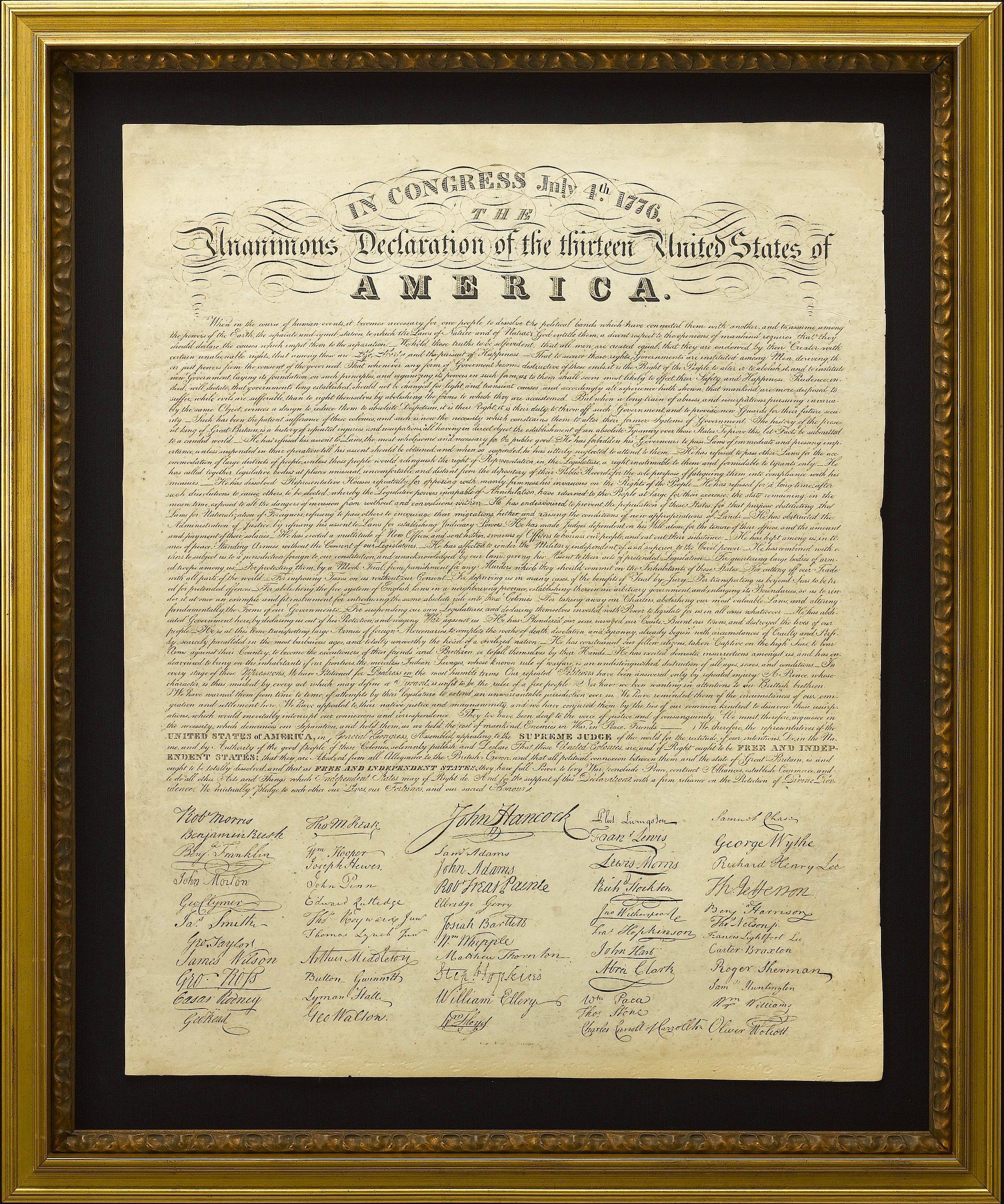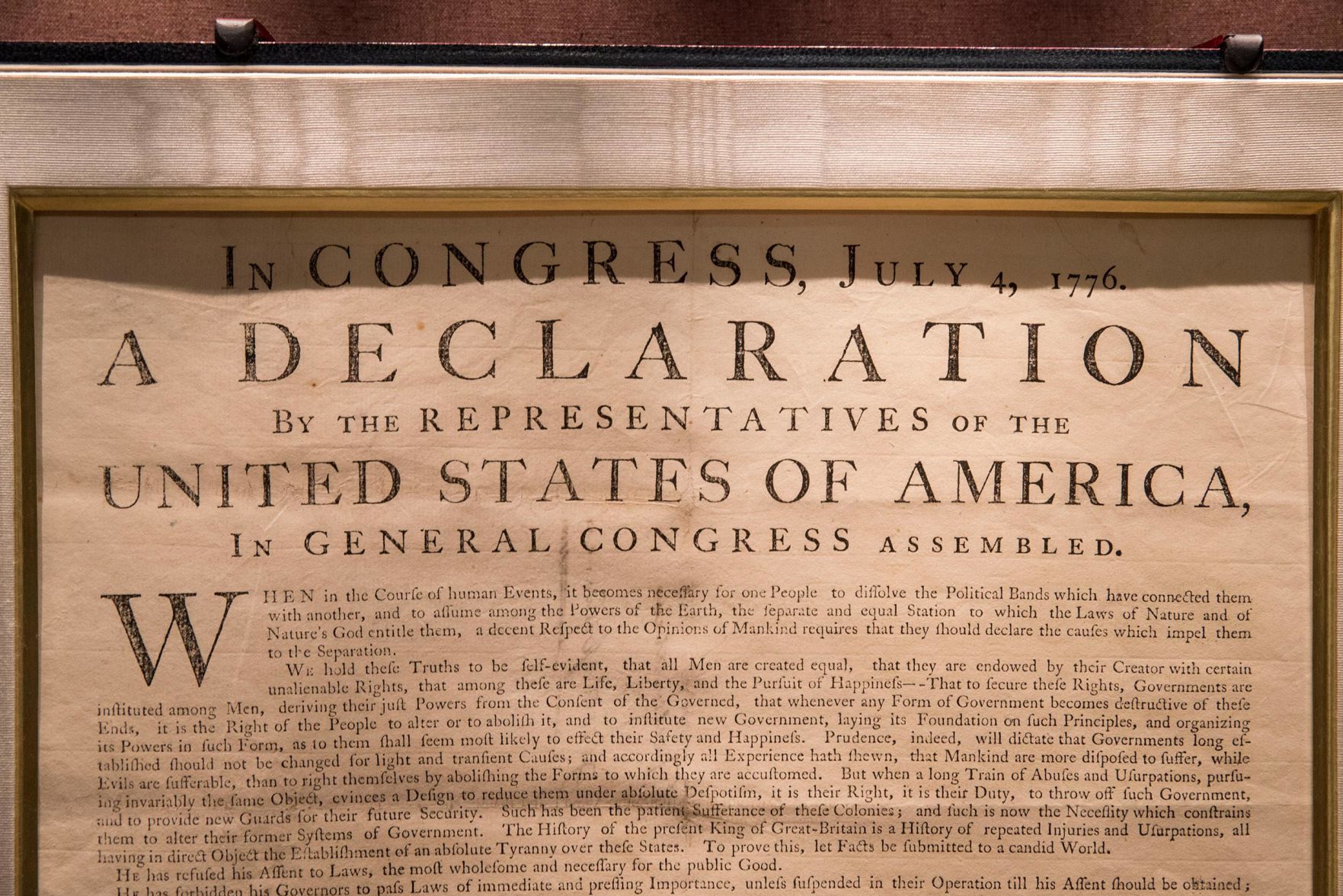

Political covenants, called compacts in their secular form, would have had the Declaration serve as a preamble and bill of rights to a constitution. The document also turns out to be part of a political covenant of the kind long used in America, and originally derived from covenant theology.

Indeed, the manner in which state and national perspectives are balanced make this the first national document to lay out federalism as a central aspect of American political thought. The document could be read with approval by students of Whig political thought, or the Enlightenment rationalists, or the deeply religious those jealous of state power, or nationalists. Viewed in this context, the Declaration is not only an efficient summary of American political thought, but also a careful rhetorical balancing of contending views. New York: Simon & Schuster, 2005.The Declaration of Independence is an efficient, abstracted summary of the eighteenth-century American mind. American Scripture: Making the Declaration of Independence. In a stunningly original look at the American Declaration of Independence, David Armitage reveals the document in a new light: through the eyes of the rest. George Washington: A Biography, Volume Four, Leader of the Revolution. “General Orders, 9 July 1776,” Founders Online, National Archives. “To George Washington from John Hancock, 6 July 1776,” Founders Online, National Archives. They toppled and decapitated it, later melting down the body for bullets that would be much needed in the coming battles to defend New York and the new nation that lay beyond it.ġ. The words were so moving that citizens who had heard the declaration raced down Broadway toward a large statue of King George III. Next came Jefferson's stirring words explaining ".that all men were created equal and endowed by their Creator with the inalienable Rights of Life, Liberty, and the pursuit of Happiness." Since King George III had trampled on these rights, as Jefferson argued in a long list of complaints against him, the people of the United States of America had the right to break the political bands that tied them to Great Britain and form a new government where the people would rule themselves. It has been said that the Declaration of Independence was the promise the Constitution was the fulfillment. Washington explained that Congress had "dissolved the connection" between "this country" and Great Britain and declared the "United Colonies of North America" to be "free and independent states." 2 The Declaration of Independence and the Constitution of the United States are the two most important, and enduring documents in our Nation’s history. 1 For the commander-in-chief, who needed to lead his untrained army against Great Britain, the decision for independence came as welcome news, especially since his men would now fight not merely in defense of their colonies but for the birth of a new nation.Īs Washington's soldiers stood ready for the brigadiers and colonels of their regiments to read the Declaration of Independence, they first heard words written by their commander. He concluded that Americans would have to rely on the "Being who controls both Causes and Events to bring about his own determination," a sentiment which Washington shared. Hancock explained that Congress had struggled with American independence for some time, and even after making this momentous decision, many members were worried about its consequences. Washington received official notification when a letter dated July 6 arrived from John Hancock, the president of the Continental Congress, along with a copy of the declaration. Two days later on July 4, a declaration explaining the reasons for independence, largely written by Thomas Jefferson, was adopted. The Continental Congress voted for independence on July 2.

Even as his men waited to hear the proclamation read aloud to them, Washington knew that thousands of Hessians and even more redcoats were landing on Staten Island, preparing for an attack on New York. To those who believed peace commissioners were on their way to the colonies to effect this reconciliation, Washington responded that the only people heading to the colonies were Hessian mercenaries. He had grown impatient with representatives who hoped for reconciliation with the mother country. Washington, like many others in the army, had been waiting for this declaration for some time. General George Washington had ordered them to assemble promptly at six o'clock to hear a declaration approved by the Continental Congress calling for American independence from Great Britain. On the evening of July 9, 1776, thousands of Continental soldiers who had come from Boston to defend New York City from the British marched to the parade grounds in Lower Manhattan.


 0 kommentar(er)
0 kommentar(er)
